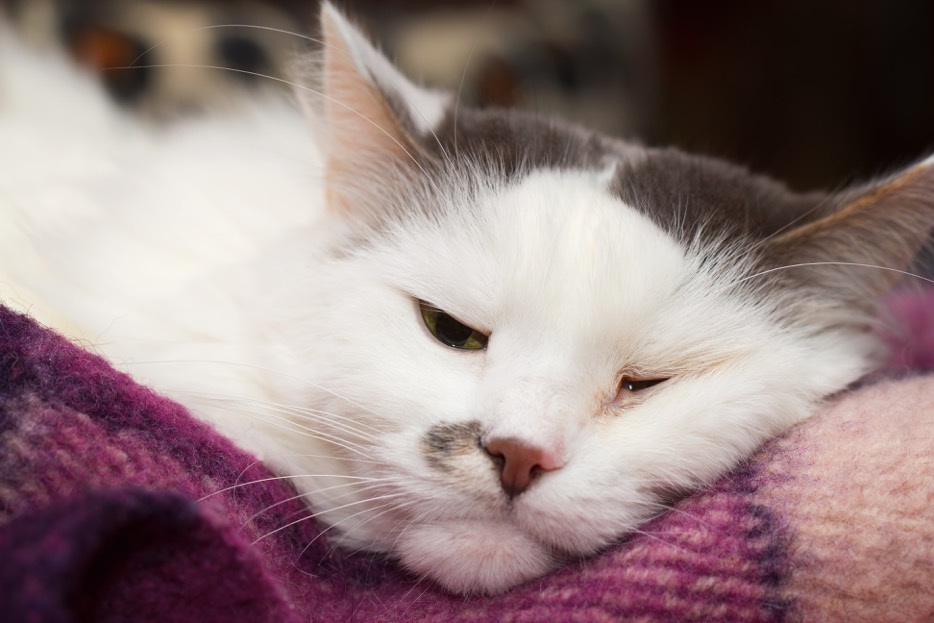
Chronic Kidney Disease (CKD) is a leading cause of death in more than half of cats over 15 years old.
“A diagnosis of kidney disease sounds ominous, but can be managed. With the right diet, supplements, hydration and new medications being developed, it’s possible to keep senior kitties comfortable and extend their lives,” said Dr. Laurie Brush, founder of Heaven at Home Pet Hospice.
Early Warning Signs of Kidney Disease
Early diagnosis helps prolong your cat’s life, so it’s important to have your cat’s kidney and thyroid function checked annually starting as early as age 7. This should include blood work and a urinalysis. Early intervention, sometimes as simple as a diet change, can extensively prolong your kitties life. It’s also important to note changes that can indicate early warning signs of kidney failure in your kitty such as:
- Frequent and/or inappropriate urination
- Increased thirst
- Increased susceptibility to bladder and kidney infections
- Weight loss and decreased appetite
- Vomiting, diarrhea, and bloody or cloudy urine
- Mouth ulcers, especially on the gums and tongue
- Bad breath with an ammonia-like odor
- A dry, unkempt hair coat
- Constipation
- Weakness and lethargy
Ways To Help Cats with CKD
Diet Modifications
A prescription diet restricting protein and phosphorus may be one of the first changes recommended with early renal disease. Warming food and hand feeding can help encourage cats to eat. Tuna juice water, gravy or low-sodium chicken broth can be mixed with food to coax eating and increase water consumption.
Medications
As more symptoms develop, and in response to blood work and urinalysis changes, your veterinarian may prescribe additional medications and supplements to alleviate and minimize those symptoms. For example appetite stimulants, anti-nausea medications, supplements like fish oil and calcium carbonate, antibiotics, potassium supplements
Hydration
Encourage your cat to drink water by providing fountains or allowing a faucet to drip. Canned food has higher moisture content than dry and is often recommended for this reason.
Subcutaneous Fluids
When kidney disease advances, subcutaneous fluids may be recommended to help your kitty stay hydrated and to flush toxins out of his/her blood. Generally, subcutaneous fluids can be given at home from twice weekly, to every day.
Reduce Stress
Try to ease your cat’s stress as much as possible. Provide a variety of environments that go from dim to well-lit, with multiple litter box options. Boredom causes stress, so allow access to a window where he or she can watch people and birds. Feline pheromone collars and diffusers may also be helpful.
While there is no cure for CKD, proper management and early detection can keep your kitty comfortable well into his or her sunset years.
